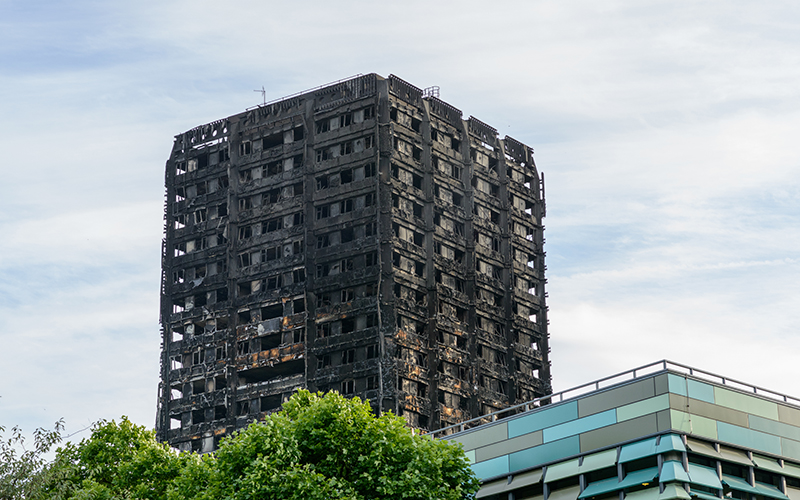
A leading architect has called for a return to more traditional building contracts in the wake of the Grenfell Tower tragedy.
Alan Dunlop, professor at the University of Liverpool and Scott Sutherland School of Architecture & Built Environment at Robert Gordon University, has long spoken out against the way public projects are procured.
He has bemoaned what he described as the “marginalisation of architects in the design team” and would like to see them play a more significant role in the creation and completion of major building projects.
He told Project Scotland, “Take it back to a traditional form of building contract where it’s properly resourced. You have a proper set of drawings; you have a bill of quantities; you have an architect whose responsibility is not only to the contractor to make sure the building is actually produced, detailed and specified properly but also has immediate contact with the building users and the people who have commissioned the project in the first place, and they act as an honest broker between the two.
“The only way that we get back to actually doing this, it seems to me, is to return to a more traditional form of building contract, rather than this emphasis on cost cutting, value engineering and the lowest price.
“That’s how we should do it and as a society, we start thinking that the design of schools and of hospitals and the creation of these buildings is so important to us that we can no longer depend on private finance or consortia or managers to make sure they’re fit for purpose.”
17 schools were temporarily closed in Edinburgh last year following the discovery of building defects after the collapse of a wall at Oxgangs Primary. The schools were built under a public private partnership (PPP) scheme. Mr Dunlop said that while there is no comparison between Grenfell and the schools in terms of tragedy, there are parallels in the procurement process.
“As far as the tragedy of the whole thing, it can’t really be comparable, for instance, with Oxgangs School but nevertheless I think there are similarities between how we procure social housing projects, like Grenfell… and how we procure public projects. All now are driven by private finance.”
Mr Dunlop highlighted “a lack of governance” on projects. “Local and national government, and all those who are responsible for commissioning buildings that are driven by private finance and are led by contractors, can no longer hide behind this supposed contractual obligation that if things go wrong the contractor has to fix it.
“The Grenfell tragedy and to a lesser extent Oxgangs school changed all that. So they need to know a lot more about contracts – they need to be a lot more astute about contractual procedures.”
Mr Dunlop also expressed concern that the team involved in the Expert Fire Safety Panel inquiry into the fire, set up by Communities secretary Sajid Javid, does not include any architects.
“Architects, male and female, who are at the coalface as far as specification of these items are concerned, (are) not included within the team that is going to look at fire safety so already I’m worried.”
However, Mr Dunlop said he was “desperately hopeful” the inquiry would lead to change and building regulations would be “tightened up”.
“I’m hopeful as a consequence of this something really significant will change as far as how we actually approach these buildings and how procurement is actually done and proper quality assessment is actually done in the projects themselves, and not only that, we have an audit afterwards about how things have actually carried through and how they’re actually undertaken, which is satisfactory to all.
“Things really have to change – not that we have to get rid of high-rise housing, lots of people like living in high-rise housing – we just have to make sure they’re properly protected and they’re properly risk evaluated against fire.”








